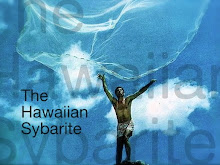Wednesday, 21 April 2010
Quality of Life Improvement 10: Mankiller
Wilma Mankiller, Asgaya-dihi in Cherokee, died on April 6. She was 64.
Mankiller's life-story is worthy of a book and, thankfully, she wrote one.
The sixth of eleven children, she was born on the Cherokee reservation in rural Oklahoma but her family was moved to San Francisco's Tenderloin in 1942 by the Bureau of Indian Affairs' Indian Relocation Program, despite the fact that no one in the family had the remotest conception of a "city." At 17 she married an Ecuadorian college student, had two daughters and later graduated from San Francisco State University, notably participating in the Occupation of Alcatraz Island in 1969.
in 1977 she divorced and returned to Oklahoma and to the Cherokee Nation. Two years later, Mankiller was gravely injured in a head-on automobile collision, and she continued to suffer from a multitude of other ailments throughout the remainder of her life including myasthenia gravis, a kidney transplant, breast cancer, lymphoma and pancreatic cancer.
Storied preamble notwithstanding, the singular characteristic that made Wilma Mankiller "one of the most influential Native Americans in America" was the power of her conviction to rewrite her own constitution—in the process becoming the Cherokee Nation's first female principal chief.
During her tenure as chief she saw the population of the Cherokee Nation grow from 55,000 to 156,000, raised $20 million for infrastructure projects on the Cherokee Reservation and also attempted to reunite the Cherokee of Oklahoma with the Eastern Cherokee of North Carolina. Mankiller was awarded the US Presidential Medal of Freedom, the Elizabeth Blackwell Award, the John W. Gardner Leadership Award and was inducted into the National Women's Hall of Fame in 1993, as well as the Oklahoma Women's Hall of Fame. In an intriguing side-note, in 1994 Mankiller and the singer Patsy Cline were among the inductees into the National Cowgirl Museum and Hall of Fame.
An accomplished and best-selling author, Mankiller published two books: "Mankiller: A Chief and Her People" and "Every Day Is a Good Day: Reflections by Contemporary Indigenous Women."
Gloria Steinem said in a review of "Mankiller: A Chief and Her People" that "As one woman's journey, Mankiller opens the heart. As the history of a people, it informs the mind. Together, it teaches us that, as long as people like Wilma Mankiller carry the flame within them, centuries of ignorance and genocide can't extinguish the human spirit."
Wilma Mankiller humbly explained her seemingly supernatural imperturbability by a complete absence of fear of death that came from her many encounters with her own mortality.
In the month before her death, she issued a statment explaining to her family and friends that she was "mentally and spiritually prepared for this journey; a journey that all human beings will take at one time or another. I learned a long time ago that I can't control the challenges the Creator sends my way but I can control the way I think about them and deal with them."
"On balance, I have been blessed with an extraordinarily rich and wonderful life, filled with incredible experiences. And I am grateful to have a support team composed of loving family and friends," Mankiller continued. "It's been my privilege to meet and be touched by thousands of people in my life and I regret not being able to deliver this message personally to so many of you."
Subscribe to:
Post Comments (Atom)



No comments:
Post a Comment